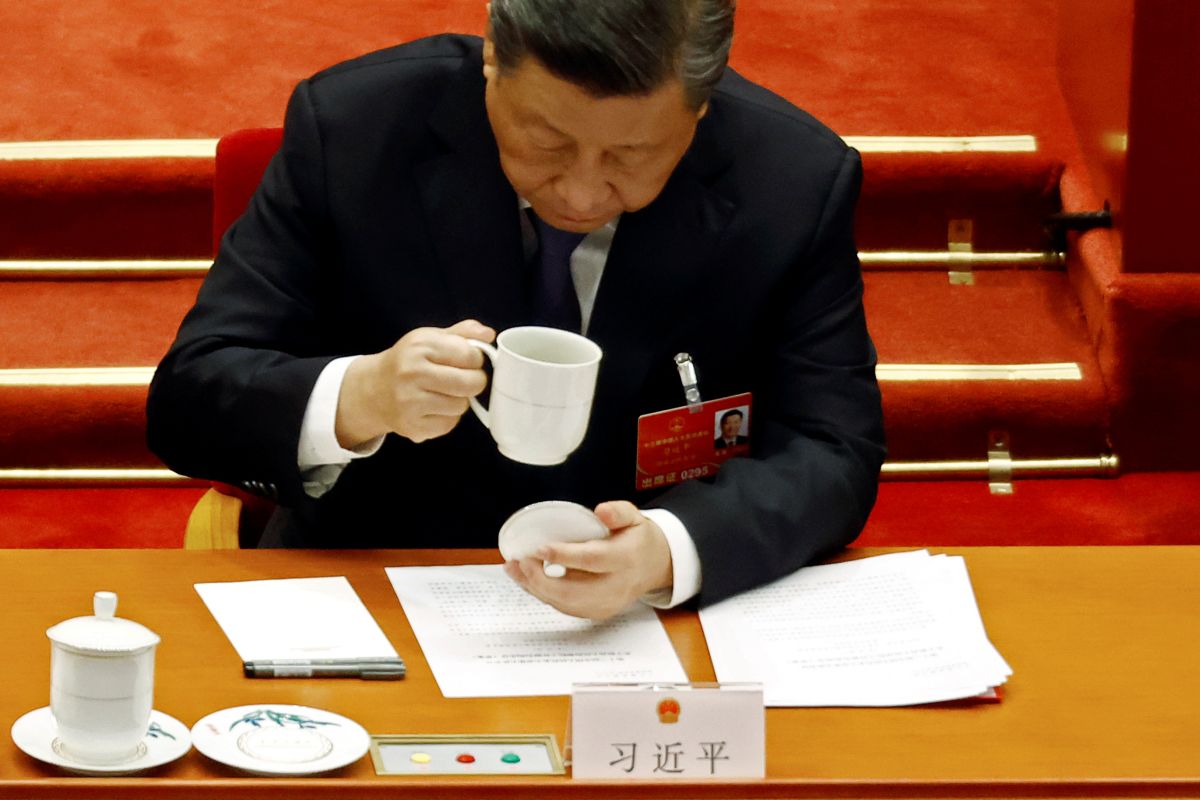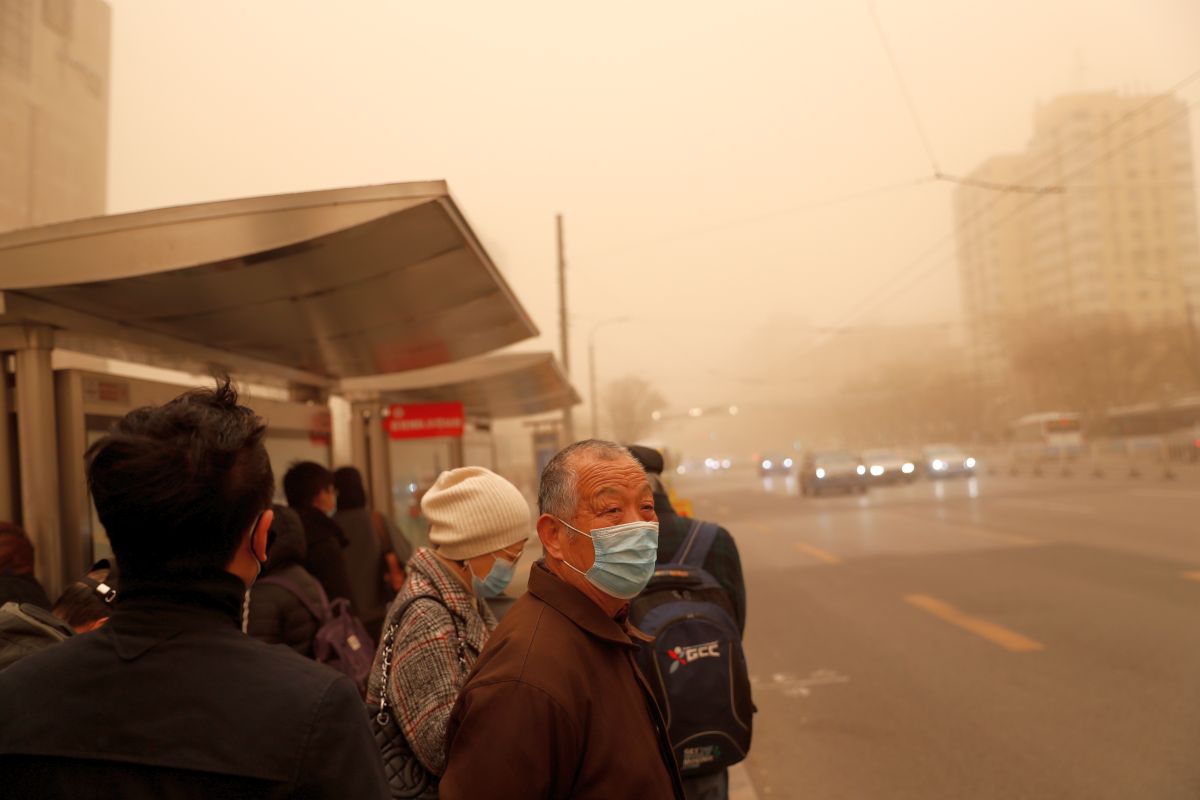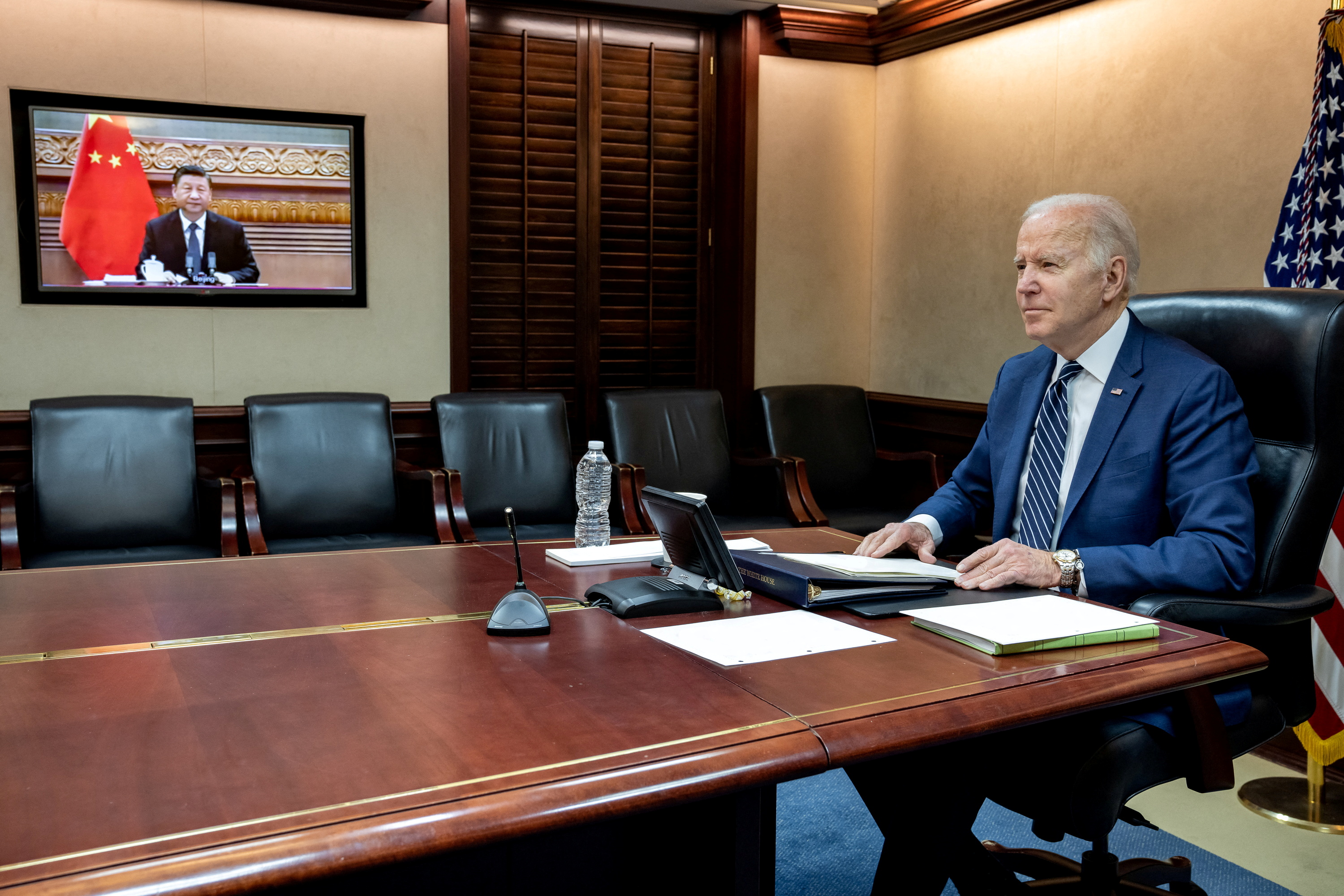After the National People's Congress: China's Economic Challenges and Cooperation with Russia
During the annual session of the National People’s Congress (NPC), which ended on 11 March, the Chinese authorities confirmed a downgrade of 2022 economic growth forecasts, as well as plans to develop social programmes for the middle class. In terms of foreign policy, cooperation with Russia is of key importance for China. China’s position means that the EU and the U.S. cannot count on it to support their position in the context of the war in Ukraine, or regarding an end to economic controversies or resolving human rights issues.
 CARLOS GARCIA RAWLINS/ Reuters/ FORUM
CARLOS GARCIA RAWLINS/ Reuters/ FORUM
The NPC is the Chinese parliament that meets annually to approve the CCP’s decisions, including adopting new laws. The meeting includes reports from Chinese institutions, including the government and the Supreme People’s Court, on the previous year’s work and the presentation of plans for the current one. The prime minister’s speech with a report on the work of the government as well as press conferences by the head of government and the minister of foreign affairs are regular events at NPC’s session.
This year’s deliberations were dominated by the challenges facing the Chinese economy. The authorities emphasised the success of the Olympic Games in Beijing, which finished in February, but also, in referring to the war in Ukraine, the strategic cooperation between China and Russia. The end of this year’s NPC session coincided with the largest wave of COVID-19 infections in China since 2020.
Economic Challenges
In the government’s report on work in 2021 and plans for 2022, Prime Minister Li Keqiang presented the positive results of China’s economy last year. GDP growth reached 8.1% (the highest level in a decade, which results, among others, from the low base of 2.2% in 2020), and the unemployment rate in cities was maintained at a relatively low level of 5.1%. The prime minister also praised the government’s actions concerning innovation or ecology. He was optimistic about economic growth in 2022, estimating it at the level of about 5.5%. He also declared the government’s desire to increase consumption by the Chinese, including changes in the healthcare system so that the Chinese, instead of putting aside money for these purposes, will spend it. Economic growth is to be supported by investments in infrastructure, including road and water infrastructure (these already increased in January and February by more than 14% year on year). However, the declarations made in the report were not very specific. The report itself, apart from consumption, points to further strengthening of exports as the main element of China’s development, including an introduction of tax relief for companies selling abroad.
The effects of the COVID-19 pandemic remain a challenge for China’s economy, including the particularly weak demand, both in China and internationally. Another problem is the declining incomes of the local authorities and unbalanced budgets due to restrictions on the sale of land as well as high debt. The government declares that in 2022 it will reduce spending from the central budget and will direct more money to the provinces. The report also includes the possibility of financing plans, including investments, by bonds issued by local authorities.
The government declares a reduction in CO2 emissions for 2022 but reaching peak emissions only in 2030, which is confirmed by recent decisions to build new coal-fired power plants. The expected shortages in the food market in 2022 and the related rising prices are a challenge for the Chinese economy. This problem, compounded by the small acreage of Chinese farms and natural disasters, has been appearing in government reports for several years now. This was one of the reasons why China has accumulated now more than half of the world’s wheat stocks. These fears are heightened by the Russian aggression against Ukraine, both of which are important suppliers of chemical fertilisers to China (more than half of all imports)—Ukraine has stopped exporting them altogether, and Russia is considering such a step.
In the report, the government hardly mentions the insolvency issues of Chinese real estate companies. The sector accounts for about 20% of Chinese GDP and has been the main engine of economic growth in recent years. This points to the political background of the problem and that any solution requires first agreement within the party, which will not be easy before the autumn congress of the CCP where personnel changes in the party structures will be announced. During the NPC, Prime Minister Li Keqiang only assured that the Chinese authorities would take care of the social nature of housing policy, which may mean an increase in Chinese creditworthiness, as well as regulatory actions, including, for example, further housing price limits.
Cooperation with Russia
It is customary for the head of diplomacy to discuss foreign policy issues during the press conference during the NPC’s session. This year, Russia’s aggression against Ukraine was one of the most important topics at the conference. The minister’s message was clear: strategic Sino-Russian cooperation is important and beneficial for both sides. He avoided, in line with previous Chinese statements, the term “war”, instead describing overall the Russian aggression against Ukraine. Wang repeated, in line with China’s six-point plan for Ukraine announced a few days earlier, which includes respect for the territorial integrity of all states (without mentioning Ukraine directly) and the United Nations Charter. In parallel he underlined the importance of Russia’s threat perception of the U.S. and corresponding need to change the security architecture in Europe. The minister noted that “some forces” (meaning the United States) are dissatisfied with good relations between the EU and China. He referred to the EU-China summit planned for 1 April and said it is worth striving for a positive conclusion, for example, the EU resigning from creating instruments aimed at China (including a mechanism to fight extortion of Member States). By underlining China’s commitment to peace and negotiations, he tried to present the Chinese position on Russia’s invasion of Ukraine as ambivalent.
A large part of the Wang Yi conference was devoted to the situation of the Chinese in Ukraine, which was an attempt to improve the image of the authorities in the face of problems with the evacuation of Chinese citizens by the Chinese embassy in Ukraine. It started with a delay and then information about their poor living conditions appeared on Chinese social media. Hence, Wang’s assurances of the involvement of diplomats, Chairman Xi himself, and the entire CCP in improving the wellbeing of Chinese citizens abroad.
Another important topic at the conference with the foreign minister was the issue of Taiwan. For China, it is an “internal issue”, and Wang Yi refused to make comparisons between possible support for Ukraine’s sovereignty and China’s refusal to do the same for Taiwan. The minister once again blamed the island’s ruling Democratic Progressive Party and the U.S. for instability in the Taiwan Strait.
Conclusions and Perspectives
The course of this year’s NPC confirms that the authorities want to continue to strengthen the role of the internal market and consumption in China’s economy as part of its “double circulation” policy. The same is true of its “common prosperity” concept, which means changes in the distribution of national income and the reduction of inequalities. The implementation of both of these Xi Jinping flagship concepts, which modify the current model of economic growth (with the leading role of exports and investments), is, however, hampered by the difficult situation related to the COVID-19 pandemic, and above all by the nature of the political system, its centralisation, and bureaucratisation.
The session of the NPC showed no chance to change China’s stance on the war in Ukraine. In the CCP’s view, Russia remains China’s strategic partner in its key rivalry with the U.S., which is of a strongly ideological nature. However, China’s support for Russia is not absolute. Minister Wang Yi’s speech was full of statements aimed at making China credible as a country supporting negotiations and solving the humanitarian crisis in Ukraine. However, they should mainly be read as an attempt to improve China’s image in the face of its political support for Russia, especially in the days before the EU-China summit on 1 April.
China wants to create the impression (mainly towards EU countries, but also the U.S.) that it is not Russia’s partner in the aggression against Ukraine. The aim is to avoid possible sanctions targeting Chinese companies for supporting Russia. They could concern, for example, the financial or telecommunications sector. The current economic situation in China, and above all the ideologisation of China’s policy in conflict with the West, means that no changes in economic policy or the approach to human rights can be expected. Thus, the suggestions to improve contacts with the EU or the U.S. are intended to protect the Chinese economy from negative actions from the outside. From the EU’s perspective, before the upcoming summit with China on 1 April, it is important to include the issue of China’s sustained support for Russia. The EU should communicate to China that in the event it provides economic or military support for Russia, the Union is ready to impose sanctions. The problems of the Chinese economy or the challenges related to changing the model of its functioning will also result in China becoming more closed to constructive dialogue with the EU.





